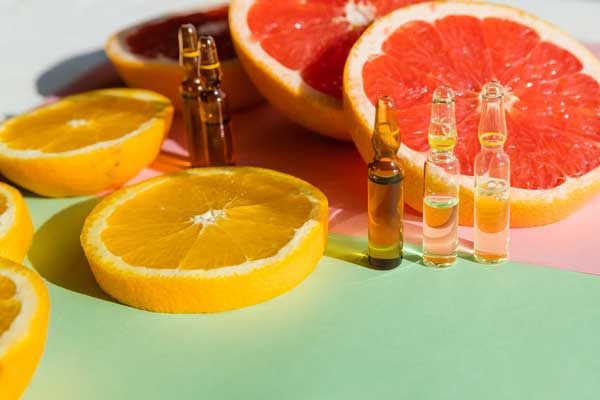Collagen is the most abundant protein in our bodies, making up nearly 30% of all protein content. It plays a crucial structural role by strengthening and supporting various tissues. As we age, collagen production starts to decline, leading to issues like wrinkles, sagging skin, joint discomfort, and weakened muscles and bones. Fortunately, there are ways to naturally increase your collagen levels through diet, lifestyle changes, and targeted supplementation if needed.

In this comprehensive guide, we will explore what collagen is, factors that deplete it, and how to boost collagen synthesis in your body for younger-looking skin and eased joint pain.
What is Collagen and Why is it Crucial for Our Bodies?
Collagen, derived from the Greek word “kólla” meaning glue, is a fibrous structural protein found throughout the body. It provides a framework for our skin, bones, muscles, tendons, ligaments, cartilage, blood vessels, corneas, and digestive organs.
Collagen makes up a significant 75% of our skin’s dry weight, contributing to its smoothness, firmness, and youthful appearance. Starting in our mid-20s, collagen production begins to decline by approximately 1% per year. This leads to loss of elasticity, sagging, wrinkles, and age spots.
Beyond skin health, collagen plays numerous structural roles:
- Joints: Acts as a cushion and shock absorber. Collagen depletion can cause joint pain.
- Bones: Provides a resilient framework to maintain bone density.
- Muscles: Supports muscle mass and function.
- Blood vessels: Imparts strength to veins and arteries.
- Corneas: Maintains optical transparency and shape.
- Cartilage: Cushions joints and protects them during movement.
- Discs between vertebrae: Allows flexibility of the spine.
Types of Collagen and Their Roles
There are at least 16 identified types of collagen in the human body. The four most common varieties include:
- Type I: Most abundant collagen variety. Forms bones, skin, tendons, and ligaments.
- Type II: Primarily found in cartilage, providing shock absorption for joints. Also present in eyes.
- Type III: Present in muscles, blood vessels, and internal organs. Imparts elasticity.
- Type IV: Forms protective membranes around cells and tissues. Found in the skin, lungs, and kidneys.
Collagen is comprised of three amino acids: glycine, proline, and hydroxyproline. Consuming foods containing these building blocks helps maintain healthy collagen levels.
Factors That Deplete Collagen
Understanding what destroys collagen allows us to make better choices to preserve it. The main enemies of collagen include:
- Aging: Collagen production declines starting in our 20s.
- Smoking: Accelerates collagen damage and skin aging.
- Sun exposure: UV radiation slows collagen synthesis and causes premature aging.
- Lack of sleep: Disrupts collagen production and restorative processes.
- Alcohol abuse: Excessive intake impairs collagen synthesis.
- Sedentary lifestyle: Inactivity causes collagen decline. Exercise boosts production.
- High sugar/carb intake: Leads to accumulation of collagen-damaging advanced glycation end products (AGES).
How to Stimulate Collagen Production
Diet: Consuming foods rich in collagen-boosting nutrients promotes synthesis. These include:
- High-quality protein: Provides amino acids like glycine.
- Vitamin C: Crucial for collagen formation.
- Vitamin A: Supports skin health and collagen production.
- Copper: Helps form collagen’s cross-links.
- Zinc: Facilitates collagen synthesis.
- Sulfur: Needed for collagen production and stability.
Exercise: Helps boost natural collagen synthesis, especially resistance training.
Adequate sleep: Allows collagen production during deep sleep stages.
Stress management: Controls cortisol, which impairs collagen formation.
Hydration: Drinking adequate water supports collagen production.
Collagen supplements: Can provide additional collagen precursor nutrients like types I, II, or III collagen peptides.
Top 10 Collagen-Boosting Foods
Here are the top natural food sources to increase your collagen intake:
- Bone broth: Provides collagen in a highly bioavailable form. Simmering bones releases collagen.
- Egg whites: An excellent source of proline and glycine. Combine with vitamin C for optimal results.
- Citrus fruits: Rich in antioxidant vitamin C to support collagen synthesis.
- Berries: Packed with vitamin C. Raspberries contain more vitamin C than oranges.
- Leafy greens: Contain chlorophyll, which may boost collagen production.
- Garlic: High in sulfur, which stabilizes collagen.
- Tomatoes: Excellent vitamin C source. Also contain collagen-protecting lycopene.
- Beans: Provide collagen-forming amino acids and copper.
- Nuts: Cashews deliver collagen-boosting zinc and copper.
- Red bell peppers: Abundant in vitamin C. Contain twice the amount as green peppers.
The Takeaway
Collagen plays a vital structural role throughout the body. Production starts to decline in our 20s, leading to skin aging, weakened joints and bones, and muscle loss. Fortunately, consuming collagen-boosting foods, exercising, sleeping sufficiently, and managing stress can help stimulate natural collagen synthesis. Targeted supplementation may also help. Focus on lifestyle factors first before considering supplements. With consistency, you can restore youthful-looking skin, ease joint discomfort, and support whole body vitality.
